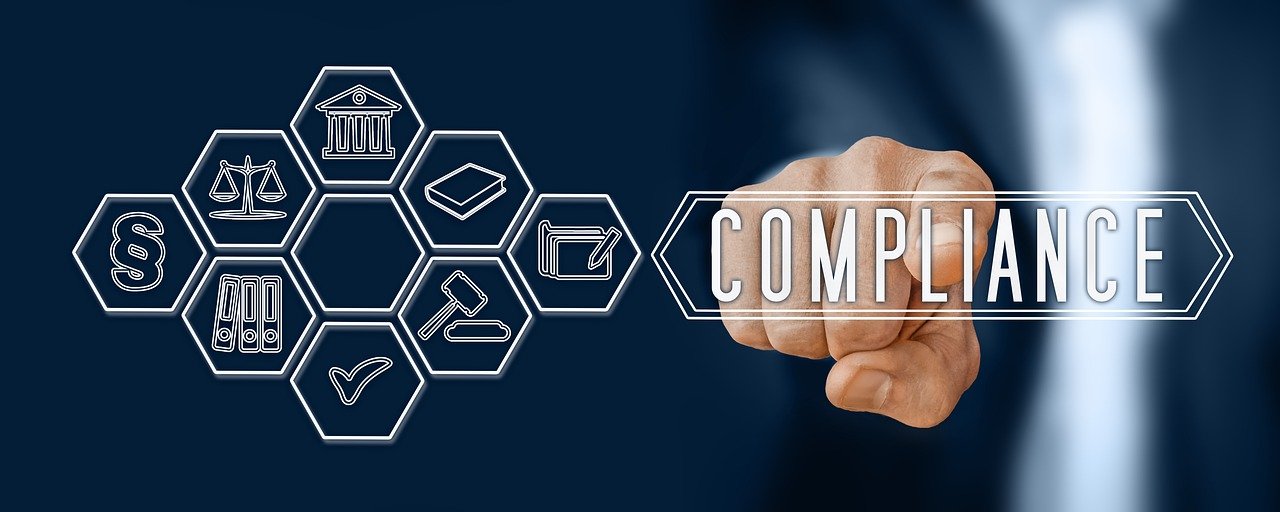We can help you in managing compliance and regulatory expectations by assisting you in developing complete framework related to your industry and business sector. These will not only include areas such as Know your Customer (KYC), Anti-Bribery and Corruption (ABC) and Anti Money Laundry (AML), but will also include other Primary and Secondary risks such as Credit, Markey Liquidity and Operational risks.
We have the knowhow to help you develop the Framework and related policies, procedures, control statements and risk register in accordance with international best practices such as COSO standards, Basel principles and/or local country regulatory expectations. Such as Foreign Corruption Practices Act (FCPA), the UK Bribery Act (UKBA) etc.
What We Offer?
Our solutions can help you manage and implement following frameworks:
- Anti-Money Laundry
- Anti-Bribery and Corruption
- Know Your Customer
- Primary and Secondary Risks


Corporates are subject to a number of laws, regulations, administrative actions and policies designed to maintain the safety and soundness of businesses in jurisdictions in which they operate, ensure their compliance with economic and other obligations and limit their exposure to risk. These regulations may limit the business's activities and their ability to carry on certain parts of its business or to grow its business generally and any changes to such regulations may increase the cost of doing business.
In order to carry out and expand its businesses, it is necessary for the corporates to maintain or obtain a variety of licences, permits, approvals and consents from various regulatory, legal, administrative, tax and other governmental authorities and agencies.
There is increased international scrutiny of businesses operating in all markets, in connection with anti-money laundering ("AML"), anti-terrorist financing, sanctions and other regulations, some of which are international in their application. These laws and regulations require businesses, among other things, to adopt and enforce "Know Your Customer" ("KYC") policies and procedures and to report suspicious and large transactions as part of their AML requirements to the applicable regulatory authorities.
Company's ability to comply with all applicable regulations is largely dependent on its maintenance of compliance, audit and reporting systems and procedures, and its ability to attract and retain personnel qualified to manage and monitor such systems and procedures.
The compliance function plays a vital role in identifying, assessing and providing advice relating to compliance with applicable laws and regulatory requirements. In addition to monitoring and reporting on compliance- related risks (which may give rise to legal and administrative penalties, financial loss or reputational damage), the compliance function is also responsible for oversight of the implementation of anti-financial crime operations.
The compliance function must remain independent and be able to provide services responsible for specific activities in line with the corporate's policies and regulatory requirements. Major activities in Compliance are:
1. Compliance Monitoring Section
The compliance monitoring section maintains an inventory of all regulations that impact the Bank and a risk register that includes a risk assessment of all key regulatory requirements impacting the Bank. It also maintains a log of all breaches of regulation noted from compliance monitoring activities or reported to it by other control functions.
 The compliance monitoring section is also responsible for conducting reviews, on a risk-based approach, of various activities and products offered by the Bank against the applicable regulations. This proactive approach supports the business to take corrective measures against the identified gaps, if any. The nature, timing and extent of monitoring activities are based on a number of factors including the "residual" risk assessment of activities and products offered by the Bank. These activities must be approved and driven by fit for purpose compliance monitoring program.
The compliance monitoring section is also responsible for conducting reviews, on a risk-based approach, of various activities and products offered by the Bank against the applicable regulations. This proactive approach supports the business to take corrective measures against the identified gaps, if any. The nature, timing and extent of monitoring activities are based on a number of factors including the "residual" risk assessment of activities and products offered by the Bank. These activities must be approved and driven by fit for purpose compliance monitoring program.
2. Advisory and Business Support Section
The advisory and business support section determines the impact of all regulatory updates on the corporate's processes. Regulatory updates include new regulations, amendments to existing regulation, clarifications of existing regulations and notifications. Where it determines that existing business processes and IT systems do not support the regulatory updates, the section provides advise to support in business in implementing the regulatory requirements.
The advisory and business support section is responsible for providing interpretation and advice to the business units on an ongoing basis in relation to applicable regulations. It performs root-cause analysis and appropriate response plans where needed in the event of regulatory breaches.
The advisory and business support section is also responsible for conducting a review of internal policies and procedures to ensure they comply with regulatory requirements and for verifying that new products, services, and systems are consistent with all rules and regulations and internal procedures and instructions. The activities include:
- Diagnostic of scope and impact of new regulation
- Interpretation and advice
- "Root-cause" analysis in the event of identification of regulatory breaches
- Review of internal policies, procedures and systems
- Advising in the introduction of new products, services, and systems
3. Regulatory Affairs & Business Ethics and Development Section
The regulatory affairs and development section coordinates regulatory inspections and ensures that the requirements of the examiners are fully met. It also prepares and presents reports on compliance initiatives to the Executive Management when required and the Board on a semi-annual basis, reports progress against the compliance plan to on periodic basis to internal/external stakeholders.
The regulatory affairs and development section can monitor compliance with internal compliance policies; for example, in a Financial Institution (FI) it can monitor the FI's insider trading policy, gift and entertainment declaration policy, conflict of interest policy and certain other policies on an ongoing basis in accordance with national regulator's requirements. It also educates staff on regulatory compliance and AML matters.
4. AML and CTF Section
The AML and CTF section ensure Corporate's compliance with AML and CTF rules and international best practice, such as the seventh principle of the Basel Committee on the Compliance Department. In FI Money Laundering Reporting Officer will be part of this section and is the focal point for monitoring all AML and CTF-related policies and activities within the FI and is responsible for assessing whether suspicious activities should be the subject of a Suspicious Activity Report to be submitted to the relevant body.
The section actively participates in the monitoring of all new businesses activities such as account opening and transaction monitoring activities of accounts that are defined as "High Risk Accounts", based on regulator rules and regulations that require active monitoring of compliance.
5. Financial Crime Prevention
The financial crimes prevention department (FCPD) is one of the corporate's control functions and is responsible for aligning the control framework, governance and remediation actions for all fraud, financial crime, bribery and corruption risks on an integrated financial crimes prevention risk platform.
In accordance with the internal corporate's policies and objectives, the FCPD ensures that all fraud and financial crime- related mandates, directives, policies and procedures implemented within the organisation are in compliance with regulatory guidelines issued by the national regulator. The FCPD aims to:
- Fully understand the complete impact of fraud and financial crime.
- Embed fraud risk assessment for the detection and prevention of known vulnerabilities for risk remediation and enhanced customer experience.
- Implement international standard tools and techniques to mitigate fraud and financial crime risks.
- Make the businesses' investments in relation to fraud and financial crime controls more cost effective.
- Build trust with the corporate's customers and business partners.
Fraud Prevention Section - which aims to minimise losses and prevent occurrences of all fraud and financial crime-related incidents within the corporation by developing and implementing tools, methodologies, systems and techniques for the detection, prevention and monitoring occurrences of fraud and financial crime and maintaining a common reporting and communication platform for this purpose.
Anti-bribery and Corruption Section - which is responsible for detecting and investigating potential or reported bribery and corruption activity.
Awareness and Education Section- which develops and delivers anti-fraud and financial crime training plans and awareness sessions for all employees in co-ordination with the Human Resources department. It also co-ordinates awareness-related activities across the corporate by way of e-bulletins, newsletters and circulars.